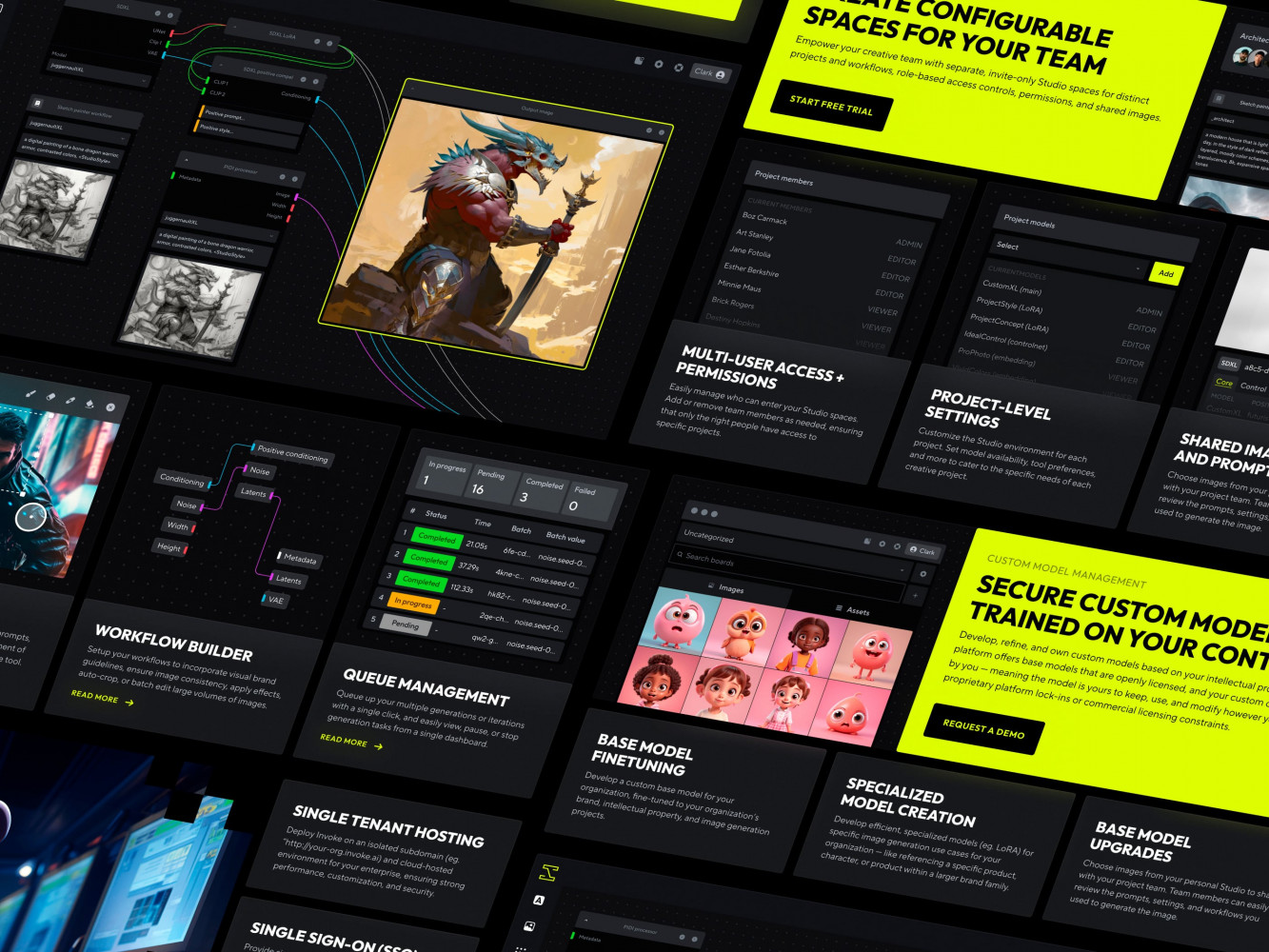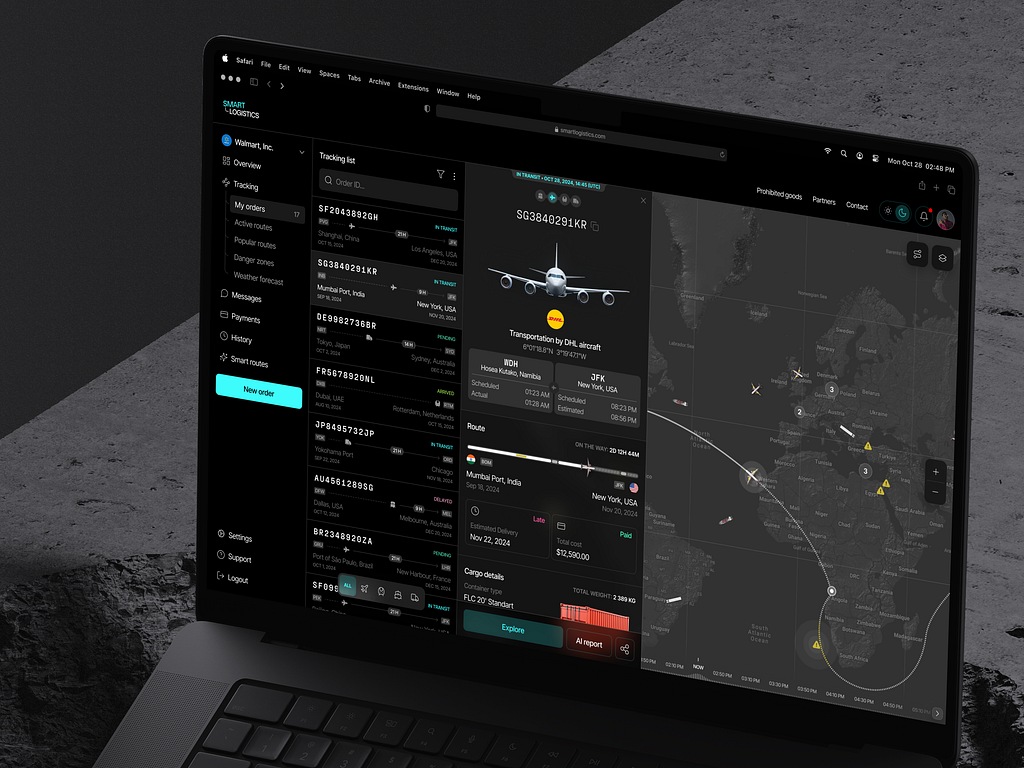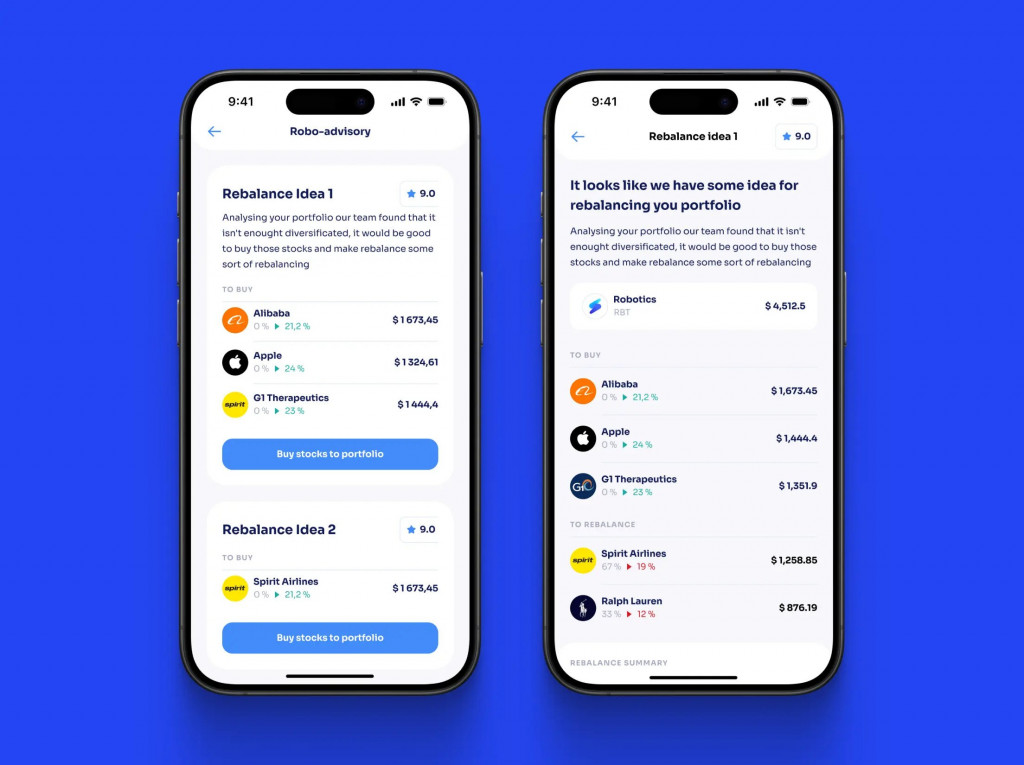Hiring developers the first time feels like playing tech roulette—“Will this team actually finish what they start?” Communication breakdowns, hidden costs, or that awkward silence when you ask, “So… when do we launch?” Ugh, the memories. And don’t get me started on outsourcing headaches where you end up managing a team halfway across the world like a part-time time zone juggling act.
Contents:
Is there a way to skip the headache? A team that’s just yours —no split focus, no “we’ll get back to you next week.” Developers who know your vision inside out, show up like clockwork and actually want your project to succeed. That’s the magic of a dedicated development team.
Now, I know what you’re thinking: “Another buzzword, right?” Fair. But hear me out. In my first gig, we tried the “hire a few freelancers” route. It was… let’s say, “educational.” Missed deadlines, code that made my eyes water, and a lot of “Wait, who was responsible for that again?” Then we switched to a dedicated team. Suddenly, things clicked. They became an extension of our own office (even if they were virtual). It’s like finally finding a band that actually rehearses together instead of winging it.
This article isn’t just another sales pitch. It’s sharing the real deal—why dedicated teams aren’t just a luxury, but a lifeline for anyone who wants to build something meaningful without drowning in chaos. We’ll talk about how to pick the right crew, avoid rookie mistakes, and yes, survive those dreaded scope changes.
What is a Dedicated Development Team?
Definition and Core Concept
This is a team of developers, designers, and QA testers who only work on your project. They’re your in-house team but outsourced—same vision, same focus, just not at the office. You manage their time, priorities, and focus. In return, they know your product inside-out and stick with you long-term.
The key here is dedication (dedicated and dedication, see the correlation?)—they don’t split their time between 10 clients. They’re solely yours. You manage them directly, set the roadmap, and they adapt as your needs change. It’s a partnership, not a transaction.
How It’s Different From Other Models
Here I’ll mention the differences just slightly, for your basic understanding. We will dwell on them later.
So, if we compare the dedicated development team model with fixed-price projects, the difference lies in the rigid planning. I’d compare it with ordering a pizza with a set menu: building the exact thing with the exact cost. You agree on scope, timeline, and price upfront. You agree on scope, timeline, and price upfront. But! For extra toppings (=changes), you pay extra. And if the team underestimates the work? Well, try enjoying a soggy crust.
DDTs are the opposite. You’re not locked into a rigid plan. Instead, you pay a monthly fee for their time, so you can pivot, tweak, or scrap ideas without starting over. And no extra fee.
In comparison with Time & Materials (T&M), the main difference is the amount of that dedication. T&M is like paying hourly for a freelancer. You get flexibility—you can hire them for a few hours or weeks—but there’s a risk. Since they’re not “fully dedicated,” they often split their time between your project and others. Here I see a contractor who’s juggling five houses at once. You might get great work, but consistency? Focus? Not always.
A dedicated software development company? They’re only working on your house. You get accountability, continuity, and a team that learns your quirks. They’re not just clocking hours—they’re invested.

Landing Page Design for Crypto Exchange Platform by Shakuro
Who is in a Dedicated Development Team?
Creating or finding your project’s dream team really depends on what you’re building. So the essential roles might be different in your case. I’ll list the basic ones:
Core roles:
- Developers: The “doers” who write the code. The architects and builders of your digital house. Without them, you’ve got no product. There are several types: frontend (handle what users see—buttons, menus, etc.), backend (work on what’s behind the screens—databases, servers, APIs), full-stack (do both—handy for smaller teams).
- Project manager: They are the glue that keeps all these peculiar pieces in place. They’re your go-between to deadlines, budget, and keeping everything on schedule. In Agile, they’re also Scrum Master to guide standups and sprints.
- QA engineer: The “bug hunters” who test your product to make sure it doesn’t crash or act weird. They are the ones responsible for your app not freezing on launch day.
- UI/UX designer: The true artists with a passion for aesthetics that make your product look nice and easy to use. They turn faceless features into convincing graphics and build the most convenient user routes.
Nice to have, but not essential:
- DevOps engineer: They handle servers, deployment, and ensuring things continue to function (such as the quick IT person who gets Wi-Fi up and running if it goes down).
- Data scientist: If you’re building something with AI, analytics, or complex data, they’ll crunch numbers and build models.
- Tech lead/architect: The “big picture” individual who lays out the structure of the system. They’re like the city planner making sure your app doesn’t implode from its own weight.
- Legal advisor: Guides you through the dark waters of legal matters. Especially helpful if you handle sensitive information across a number of countries (fintech, medicine, etc.).
Key Benefits of a Dedicated Development Team
Total control & ownership
You’re the boss—you set priorities, deadlines, and scope. Unlike fixed-price models where the vendor calls the shots, here, you decide what gets built, when, and how. No more “We’ll get back to you” from a vendor. Your vision, your pace.
Flexibility to pivot (Without panic)
Fixed-price projects are like trying to change a recipe halfway through baking the cake—you will have to pay for extra groceries and waste time shopping. With a software developers outsourcing dedicated team, you can tweak, scrap, or add features anytime, with no penalties. If you realize you need a feature to work differently, just shift gears.
Cost efficiency over time
Yes, it’s a monthly investment, but here’s the kicker: long-term savings. No hidden fees for “scope creep” (those pesky extra costs when plans change). And since the team knows your project inside out, they avoid rookie mistakes that waste time.
Reduced risk of scope creep & burnout
You’re paying for their time, not outcomes. If they’re slow? You’ll notice and course-correct. If they’re crushing it? Celebrate! No “hidden” vendors charging you for “overhead” costs.
Long-term partnership, not a transaction
When you hire dedicated development team, it’s similar to planting a garden instead of buying a bouquet. You’re building something that grows with you. Over time, they’ll understand your product’s heartbeat, anticipate your needs, and even suggest improvements you hadn’t thought of.
Alignment with your vision (No “black box” code)
With other models, sometimes you get code that’s a mess or a “black box” you can’t tweak later. DDT works with you, not for you so they’ll explain decisions, teach your team, and hand over clean, maintainable code.
Dedicated Development Team vs Other Engagement Models
As I promised, here is a more detailed model comparison.
| Factor | Dedicated Team | Fixed-Price | T&M |
| Cost Predicability | High (monthly fee) | High (fixed upfront) | Low (hourly rates) |
| Flexibility | High (pivot anytime) | Low (locked to scope) | Moderate (pay for changes) |
| Team Ownership) | Full (you manage the team) | None (vendor manages it) | Partial (manage individuals) |
| Risk of Scope Creep | Low (no extra fees) | High (changes cost more) | Moderate (pay for overages) |
| Quality & Consistency | High (same team long term) | Moderate (vendor’s team may rotate | Low (freelancers come and go |
| Best For | Long-term projects, MVPs | Short-term projects with clear scope | Small tasks, short-term needs |
Dedicated Team vs Fixed Price Model
Fixed price means you agree to a set budget, timeline, and scope upfront. The vendor delivers the agreed work, and you pay the agreed price. I can compare it with hiring a contractor to renovate your kitchen: “Here’s the blueprint, here’s the money, here’s when it’s done.” Everything is set in stone.
So, if you want to change something on the go, it will be costly, because you can’t manage the team and timeline. The vendor does that. Actually, there can be many hidden risks: scope creep, delays, or costs. For instance, if the vendor underestimates work, you pay.
Following what I said, you’re stuck with the plan. It’ll be a pain for a budget when you add any changes. No flexibility at all.
Dedicated development team services let you control priorities. If you want to tweak features mid-sprint, no extra fees—just reprioritize the roadmap and redirect the team. At the same time, if the team underestimates, you’re not hit with surprise bills.
Dedicated Team vs Time & Material Model
In T&M, you pay for hours worked, like hiring freelancers or contractors. You get flexibility but no guarantees about focus or consistency. They might work on your project and three others at the same time.
Another difference is that this model is unpredictable. If a task takes longer, you pay more. Scope creep? That’s on you. It also can be inconsistent. When freelancers leave, you restart onboarding. Still, this model is cheap and easy to use.
DDT works only for you. No split attention. There is a predictable monthly cost. You know exactly how much you’ll spend each month. The same people stay long-term. They learn your project’s ins and outs, so quality improves over time.
Dedicated Team vs. Staff Augmentation
Staff augmentation means hiring individual contractors to fill specific roles (e.g., a frontend dev or QA engineer). You manage them directly, but they’re not part of a cohesive team.
Since they do not belong to your team, there is little synergy. It’s like hiring band members one by one: they sing beautifully, just out of sync. And if a freelancer drops the ball, it’s your problem.
When it comes to a dedicated development team model, the vendor builds a pre-vetted team that already gels. They’re a unit, not a collection of individuals. And the vendor is accountable for the team’s performance.

Landing Page Redesign for Creative Production Platform by Shakuro
When Should You Hire a Dedicated Development Team?
Early-Stage Startups
It usually follows this scenario: you’re a startup with a bold idea but limited funds, no clear roadmap, and a ton of uncertainty. You need to build an MVP, test it, and pivot quickly based on user feedback.
So, you can’t afford to waste money on features users don’t want. And, what’s more, the product to secure funding.
Dedicated development team services beat all these three challenges. It’s flexible enough to add features mid-project without extra costs. Instead of gambling on fixed-price models (which could blow up if you change scope), you pay a monthly fee. In case you’re not an expert, the team can help refine your idea, not just code it.
Projects with Vague Requirements
You have a vision but no clear details. Maybe it’s a new product category or a ground-breaking idea where requirements pop up as you go.
The absence of details in your plan can quickly make expenses spiral. It will also be harder to negotiate with vendors, as they can misunderstand your needs. Still, the situation leaves a lot of space for experimentation and testing concepts.
With an expert dedicated development team, you can figure out requirements while developing an app. Building, testing, and refining in cycles are foundational Agile principles, and such teams usually follow them. Which is perfect for experimentation.
Long-Term Projects
You’re building something that requires sustained effort over years—enterprise software, SaaS platforms, or apps with regulatory compliance needs.
Long-term projects are hungry for consistency, if a new team member jumps in, the entire process might stop. And it shouldn’t stop, as new updates and scaling features keep coming. So staff augmentation or freelancers are not an option here.
In DDT, you have the same team at different stages, and this reduces ramp-up time. They are invested in scaling and keeping the project going.
A real-life example. If you are into illustration, you probably know Stan Prokopenko and his Proko platform. Shakuro helped Stan scale it from a simple and limited WordPress website into an advanced and robust educational platform. For a long period, we worked together on adding new features like AI recommendations, search engine, online streaming, and more.

Proko app on mobile by Shakuro
This long and fruitful collaboration resulted in the platform becoming a primary marketing channel, with thousands of daily visitors.
When NOT to Use a Dedicated Development Team
DDT is all cool and nice, but sometimes it’s not suitable. Like choosing tools: a sledgehammer isn’t great for polishing silverware.
Short-Term Projects (Under 6 Months)
Setting up a dedicated development team model still takes time and upfront investment (onboarding, communication setup, etc.). For a quick project, the cost per hour might be higher than hiring freelancers or a fixed-price vendor.
If your project is a 2–6-month sprint with a clear end date (e.g., a one-time feature or small app), it’s a red flag for this model. Opt for freelancers or fixed-price models instead.
Projects with a Truly Fixed Scope
The project has a “build it and forget it” scenario—no changes, no updates, no future phases. A fixed-price model is safer then. DDT’s flexibility is a wasted benefit here. With 100% certainty that the project will never change, fixed-price is cheaper and simpler.
Limited Budget
DDTs need a monthly investment, and it can be difficult if you’re bootstrapping or broke. On tight budgets, look at alternatives such as freelancers or T&M.
If you cannot commit for minimum 6–12 months of consistent funding, DDT can consume your resources too quickly.

Logistic Company Dashboard by Conceptzilla
Challenges of Using a Dedicated Development Team
Let’s get real here—no model is perfect, and DDTs come with their own set of hurdles. I’ve seen teams thrive and stumble, so let’s unpack the actual pain points, not just the theory.
Time Zone and Communication Barriers
Your team might be in Ukraine, India, or Argentina, while you’re in New York or Tokyo. That 12-hour time difference can turn quick sync-ups into a game of “I’ll reply when I’m awake.”
And that’s how important questions take a whole day to answer. A server crash at midnight? You’ll wait until their morning. Even meetings are usually held at awkward times like 9 PM your time when all you have on your mind is just chill.
Well, there are some tools you can use to solve this when you hire dedicated development team. Async instruments like Slack, Notion, or GitHub for updates. But the easiest way is just to choose a team in a timezone close enough for at least 2–3 hours of overlap.
Language and cultural barriers are harder to break. Misunderstandings happen when workflows, humor, or work ethics clash. For instance, you think “flexible deadlines” mean “we’ll adjust,” but the team takes it as “no rush.” In some countries, harsh feedback is normal, while in others it’s considered rude.
The only thing I can suggest here is a retrospective for discussing cultural clashes. And, of course, open communication is a must.
Management Overload (or Underload)
Aspiring startuppers often bite more than they can chew: they manage all members, they polish code, they test product versions, they attend all meetings, etc. But there is one thing. You’re the product owner, not a project manager. Hovering over every task stifles creativity. If you spend more than 20 hours/week managing a software developers outsourcing dedicated team, it leaves no time to secure funding or market your product.
At the same time, hands-off management leads to missed deadlines. So the golden middle is to hire a PM to free your own time. Also, tools like Jira or Trello greatly help manage and track deadlines. Allow the team to self-manage ONLY if they’re experienced.
Lack of Flexibility for Short-Term Projects
When you have little time on your hands, workflow with a dedicated team is not always flexible enough. Your project requires rapid-fire development, testing, and release. But you have to spend time hiring the right people (it’s not as fast as hiring freelancers), providing onboarding, etc.
It’s basically an overkill for tiny projects like a landing page, a plugin, or a simple tool. If your project can be done by 1–2 people in under 3 months, keep it lean. No need to hire a DDT.
How Much Does Hiring a Dedicated Development Team Cost?
Now I’ll dwell on a topic that often hits a nerve—money. It usually contains one question, and that’s how much you have to pay. Well, there are many factors influencing the expenses. Keep in mind though, that the numbers I give below are approximate.
Factors Affecting Cost
Team size & roles
- Smaller teams: Self-obviously, cheaper. 2–3 developers + PM + QA (e.g., $10k–$25k/month).
- Larger teams: More individuals, more money. 5+ developers + specialist roles (e.g., $30k–$60k+/month).
Location & labor costs
- Western Europe/North America: High expense but with high expertise (e.g., $60–$120+/hour per role).
- Eastern Europe: Usually it’s a balance of cost and quality (e.g., $30–$70/hour).
- India/South Asia: Lower cost, but may need more oversight (e.g., $20–$50/hour).
- Latin America: A growing market with good mid-tier talent (e.g., $30–$60/hour).
I’ll talk a bit more about where to seek a dedicated software development company a bit later. These are just bare numbers.
Expertise level
- Junior developers: Cheaper hourly rates but slower progress.
- Senior/Expert developers: 2x–3x the cost but faster, higher-quality work.
Project complexity
- Simple apps: Basic CRUD features cost less.
- Complex systems: For example, AI, real-time processing, and compliance. They have higher costs due to niche skills or longer dev time.
Management overhead
- PM: Some vendors bundle management into the DDT fee.
- Extra costs: If you need a separate project manager or QA lead.
Hidden costs
- Onboarding: Training time for new projects or tools (often free, but delays can cost time).
- Exit clauses: Some vendors charge fees if you terminate early.
Cost Comparison
| Factor | Dedicated Team | Fixed-Price | T&M | Freelancers |
| Cost Structure | Monthly fixed fee (all roles included) | One-time upfront price | Hourly rates (pay for time) | Hourly rates (per freelancer) |
| Avg. Cost (Monthly) | $10k-$70k+ | $50k upfront | $5k-$40k+ | $2k-$20k+ |
| Predictability | High (fixed monthly fee) | High (set price upfront) | Low (scope creep=higher costs) | Low (variable hours, hidden fees) |
| Scalability | High (add/remove members as needed) | Low (new contract for scaling) | Moderate (hire more hours) | Low (hiring new freelancers takes time) |
Key cost differences
- Predictability: Dedicated development team services win for long-term projects (no surprises). T&M and freelancers=“pay as you go” but scope creep can blow budgets.
- Hidden costs: With a dedicated model, the risks are lower. There are no “setup fees” per task. As for freelancers, the hidden expenses are higher.
- Quality & speed: As the team learns your project, DDT gets faster over time. And T&M may be slower because they are context-switching between clients.
DDT isn’t always the cheapest option upfront, but it’s often the most cost-effective for projects needing speed, consistency, and scalability. Like buying a car or renting it: it’s a bigger investment, but you build equity over time.
How to Hire a Dedicated Development Team: Step-by-Step Guide
Step 1: Define Your Requirements (What You Need)
Clarity avoids wasted time and money. Think about the project scope. What’s the core goal? (e.g., MVP, enterprise app, SaaS tool). List must-have features vs. “nice-to-haves.” Finally, decide on the tech stack and budget.
For example: “I need a food delivery app (MVP) with real-time tracking and payment integration. I want it in 6 months, budget $15k–$25k/month.”
Step 2: Research Vendors (Where to Find Them)
Not all vendors are created equal—some are great for startups, others for enterprises.
You can find them in a number of ways:
- Platforms: GoodFirms, Clutch, Toptal, or Upwork.
- Referrals: Ask peers or investors for recommendations.
- Agencies: Look for firms with portfolios matching your project.
Avoid teams with no case studies or vague descriptions of their process. As I said before, location, culture, religion—all this will have a great influence on the working process. Also, vendors who pressure you to sign before discussing details are obviously red flags.
Step 3: Evaluate the Team’s Expertise
Look for projects similar to yours and read reviews on Clutch or Google. For instance, eliminate a dedicated software development company that doesn’t have experience with real-time features like your app’s delivery tracking. Don’t forget initial screening questions such as “How do you handle scope changes?” or — “What’s your process for communication and deadlines?”
Once you find the top 3–5 contenders, start digging deeper. Apart from interviewing, ask them to solve a small, relevant problem. This will help you review their code quality and process. Since you will be dealing with not just the developers, meet with other parts of the team including project managers and QA.
One of the crucial features they should have is enough time to commit to your timeline (e.g., 12+ months).
Step 4: Negotiate Terms (The Contract)
Even if the team looks all nice and loyal, you need to protect yourself legally by signing a contract.
For more details, scroll to the section Contracts and Agreements. But in general, do your best to predict any bias situations, questions, etc., and include them in the contract. And of course, discuss them with the team.
Step 5: Onboard the Team
Once everything is set, introduce the team to your project. Here a lot depends on you: a smooth start avoids delays and confusion.
So plan a kickoff meeting where you align on goals, tools (Slack, Jira, etc.), and communication norms. Next, share project specs, design files, and dev environments.
Now, do not rush to climb a mountain. Start with low-risk tasks (e.g., setting up the tech stack) to build trust. Once you get to know each other, you can switch to more complex tasks.

LP Design for Fleet Control Company by Conceptzilla
Legal and Operational Considerations
I want to dwell on the legal side of the workflow a bit more since business is a serious deal. Your reputation and money are at stake. If you overlook something, there might be negative consequences disrupting the whole process.
Contracts and Agreements
A contract with a software developers outsourcing dedicated team is your safety net. Without it, you’re relying on goodwill, which can vanish fast once people understand there is nothing to hold them back. They can skip deadlines, deliver flawed builds, miscommunicate, and whatnot without any penalty. Sounds dangerous, huh?
Below I’ll list what you should include there as key points.
For work scope:
- Define deliverables (e.g., “Develop a user login system with OAuth2 integration”).
- Specify exclusions (e.g., “Does NOT include third-party payment gateway setup”).
Payment terms:
- Structure: Typically monthly fixed fees for DDT.
- Milestones: Break payments into phases (e.g., 30% up front, 70% upon delivery).
- Late payment penalties: “If late >14 days, 2% monthly penalty.”
Termination clause:
- Add exit commitments: Data transfer, last bill, and know-how transfer. Example: “Either party may terminate with 30 days’ notice.”
Confidentiality (NDA):
- Protects your trade secrets, user information, or proprietary technology. Example: “Team cannot share client’s business model with third parties.”
Liability limits:
- Damage caps: “Vendor liability is limited to 120% of fees paid in the last 6 months.”
Intellectual Property (IP) Protection:
- Ownership clause: State “Work Made for Hire” (common in U.S. law) or include an explicit IP assignment.
- Open source risks: Require teams to avoid GPL-licensed tools unless you review compliance.
- Patents/Copyrights: If the team invents something novel, clarify who owns the patent.
- Documentation: All code, designs, and processes should be thoroughly documented and stored in your repositories.
Risk Mitigation
Even the best dedicated software development company can face disruptions. So always have a plan if things go south.
Here is what you can undertake to reduce risks:
- Service Level Agreements (SLAs): Set response times for bugs (e.g., “Critical bugs resolved within 4 hours”) and uptime guarantees (e.g., “99.9% uptime for production systems”).
- Contingency plans: Accidents occur, and you can never foresee when a central developer will resign. Include a clause for the vendor to substitute them within X days. Do not overlook the clause for force majeure (pandemics, war) that temporarily halts work.
- Data security: Mandate encryption, access controls, and compliance with regulations like GDPR, HIPAA, or CCPA.
- Exit strategy: In the worst scenario, when the team leaves, you also need a safety netю For example, require a 2-week handover period. And store critical code or tools in a third-party escrow service.
- Insurance: Ask vendors to carry liability insurance (e.g., errors & omissions).
Where to Build Your Dedicated Development Team
Time to discuss another pressing matter. Obviously, each location has its own advantages and fits certain goals. You can hire developers from Latin America (LATAM) or Asia, save money but…fail to get the desired result because these teams are just keen in other areas.
| Factor | Eastern Europe | LATAM | Asia |
| Cost (Monthly Avg.) | $10k-$30k+ | $5-$20k | $4k-$15k+ |
| Time Zone | Closer to Europe/U.S. East | 1-3 hours from U.S. East | 8-18 hours from U.S. |
| Talent Quality | High (enterprise tech) | Good (Agile, web/mobile) | High (massive scale) |
| English | Very good | Moderate | Good but varies |
| Cultural Fit | Western-aligned | Strong for U.S./Latinx | Moderate (requires adaptation) |
| Best For | Complex systems | Startups + U.S. time zones | Budget-sensitive projects |
Eastern Europe
Ukraine, Poland, Belarus, Romania, Bulgaria, Czech Republic. Dedicated development team services from these countries are good for enterprise/SaaS projects needing robust tech stacks or startups scaling rapidly.
Advantages:
- Technical excellence: Strong engineering talent, especially in enterprise software, fintech, and complex systems (e.g., blockchain, AI).
- Time zone compatibility: More similar to Europe and the East Coast of the United States (for instance, Poland UTC+1).
- Cost-effective: 30–60% less than the U.S./EU but more than India or Vietnam.
- English language proficiency: Very high fluency in most nations (e.g., Poland).
- Cultural alignment: Business practices very similar to Western standards.
- Scalability: Large talent pools.
- European laws: Most countries are EU members or candidates (e.g., Poland, Romania), offering regulatory alignment.
Disadvantages:
- Higher сosts compared to other regions: Eastern European developers are often more expensive than those in LATAM or Asia. If you run a startup on a tight budget, this barrier can be too high to jump over.
- Time zone challenges: As a U.S. company, you will have easy time working with Eastern Europe companies.However, when it comes to Western Europe (e.g., London or Paris), the time difference can bring real-time collaboration close to torture.
- Political instability: Some countries have political tensions that impact how businesses work and communicate. Even if you have contingency plans, it’s still a risk to consider.
- High demand for talent: There’s fierce competition for top talent=longer onboarding times or higher turnover rates in some cases.
LATAM
Argentina, Colombia, Mexico, Brazil, Uruguay. A great choice if you’re a U.S./North American company needing close time zone alignment or a startup building MVPs.
Advantages:
- Cost-effective: 20–40% cheaper than the U.S., with rates lower than Eastern Europe.
- Time zone compatibility: Most countries are within 1–3 hours of the U.S. East Coast (e.g., Colombia is UTC-5).
- Cultural synergy: Shared language (Spanish/Portuguese) and business etiquette ease collaboration.
- Agile mindset: Many teams excel in iterative development (Agile/Scrum).
- Talent quality: Strong in web and mobile dev (JavaScript, Python, React).
- Political risks lowered: Stable democracies in Colombia, Chile, and Uruguay.
Disadvantages:
- Smaller pool of talent: Despite a growing tech ecosystem, the skilled developers are fewer in number compared to Eastern Europe or Asia. Therefore, if you need 20+ developers with specialized skills (e.g., blockchain or AI), you will waste a significant amount of time assembling such a team in LATAM.
- Language barriers outside major hubs: English proficiency is improving, especially in major cities like Buenos Aires or Bogotá. But! In smaller towns or less developed areas, people will probably speak their native language only.
- Cultural differences: North America is close in culture to LATAM, but not the same. So there are still differences in work ethics, punctuality, and communication styles.
- Infrastructure limitations: Internet connectivity and access to modern tools varies depending on the country or city.
Asia
India, Philippines, Vietnam, Malaysia, Indonesia. Opt for them if you are on a tight budget or have high-volume projects (e.g., scaling e-commerce platforms).
Advantages:
- Lowest prices: 50–70% lower than the U.S. (India: $20–$50/hour; Vietnam: $15–$30/hour).
- Huge talent pool: More than 1.5M developers in India alone, proficient in Java, Python, and AI.
- English language skills: Spoken widely, particularly in tech centers (Bangalore, Hanoi).
- 24/7 work cycles: Time zones (UTC+5 to UTC+8) allow Western teams to overlap with Asian teams for quicker turnaround.
- Infrastructure: Robust internet and tech networks (India’s IT parks, Vietnam’s software parks, etc.).
- Niche specialization: India is the outsourcing leader; Vietnam excels in gaming and fintech.
Disadvantages:
- Completely different time zone: The time zone gap between Asia and the U.S./Europe is around 13 hours. A real-time collaboration in such conditions? Sounds like a joke, unless you are a night person.
- Communication and cultural gaps: Unlike LATAM, here you have not just gaps, but an abyss. Asian working culture is built on hardcore efforts, respect for elders, and indirect paths of communication with politeness in every word. It’s strict and stiff.
- Quality variability: It can vary significantly depending on the vendor or location. Some teams might lack experience with complex or cutting-edge technologies.
- Turnover rates: High demand for tech talent in Asia, particularly in India, can lead to higher turnover rates as people frequently switch jobs for better opportunities.

Website Design for a Yoga & Wellness Platform by Shakuro
Why Choose Shakuro for Your Dedicated Development Team?
Well, I won’t boast around that because it’s not how things work in business. I’ll just tell you about what we do exactly, how we do it for our clients, and what they get as a result. The rest is up to you to decide.
Our Process
The steps are routine: we discuss the requirements, estimate the scope, approve the roadmap, gather specialists, and kick off. However, there is a great amount of depth and respect in every step we take.
Only you know how the project should look like. That vision is discussed in detail during the first meetings. Concept design, development strategy, potential competitors, branding message, target audience—all of this is essential from our point of view. Once everything is confirmed, the stage of design begins.
Some people say design is art, but for us, it’s the means of communication with the user. To keep the messages and paths clear, we start with low-fidelity prototypes. They are aimed at your target audience and take into account any special traits. Including accessibility, of course, that’s a classic for us. When the simple designs pass the first tests and get your approval, they turn into polished UIs. And get ready to be transferred into code.
Here come our developers to work some magic. They turn responsive designs into robust code. To make everything work smoothly, as expected, we use a standardized approach to communication between front-end and back-end teams. This speeds up the delivery and eliminates misunderstandings. For the same reason, the teams mastered efficient tools like React and created their own, custom-made instruments.
As a dedicated software development company, we follow Agile principles. So testing and iteration start early, and by the time of release, the product is well-polished. Not to mention it works as you expected. Apart from standard testing, the team performs usability tests with the target audience. All for the sake of accessible and friendly UX without losing visual quality. People will be able to complete their actions, with no confusion.
Finally, when all tests are passed, including your rigorous checks, we prepare the product for deployment. That includes following app store guidelines, assembling files, and publishing. But our journey with you doesn’t end there: we continue to support and scale the product after release. As a dedicated team knowing the ins and outs, scaling the project will be easier for us.
I’ll give you an example from Shakuro’s portfolio. Solio was an aspiring Korean trading startup, and they partnered with us to develop an iOS app. The thing is, the target audience was young people with little to no trading or financial experience. I bet you know the feeling when you open some financial app and boom—what are these tabs? What are these numbers? Where am I, take me home! Yeah, so we picked a deliberate approach. Simple navigation, structured financial data, glanceable diagrams, and dashboards—everything to guide people through the workflow, giving them a firm footing with their finances. In-depth market studies, tests, and Korean culture exploration are all needed to align the app with the audience’s mindset. And the icing on the cake: a robo-advisor app that hinted at investing strategies applicable to the current budget. Not to mention Korean localization. As you can see, Solio hit exactly where it was planned: a simple app for regular young people—and now it aims at the worldwide market.

Solio app by Shakuro
Unique Selling Points
- More than 500 completed projects in various areas like e-commerce, healthcare, SaaS, fintech, etc. Total 18 years of experience.
- The approach is heavily based on user-centricity, accessibility, and empathy. UX goes hand in hand with high app performance.
- Industry-standard practices spiced with custom tools and approaches to optimize performance and speed up delivery.
- Close collaboration between frontend and backend, which accelerates the entire development process.
- You become our trusted business partner. And that means we are deeply invested in your project’s success, pouring heart and soul into it.
Conclusion
All in all, a dedicated development team model is not a silver bullet. It has its own areas of implementation where it shines in comparison to other models. If you are in the early stages of development or have a long-term project—DDT is a perfect choice. Otherwise…Not that perfect.
When picking a team, you have a lot to keep in mind, from location to cultural differences, so everything comes down to what suits your project better. Be meticulous when creating and signing a contract to protect your IP and your product. One slipped detail can snowball later in the process, slowing everything down.
Here’s the final checklist:
✅ Clear requirements written down.
✅ Vendors vetted via portfolio, test, and interviews.
✅ Contract covers scope, exit clauses, and SLAs.
✅ Onboarding includes tools, access, and a kickoff.
✅ Ready to adapt as the project grows.
Frequently Asked Questions (FAQ)
What is a dedicated development team?
It’s a team that works exclusively on your project. You are the one who manages the team and their time, paying a monthly fee for the services.
Why hire a dedicated development team?
Since you manage the team, it’s very flexible: you can reprioritize features mid-sprint with no extra fees. Also, DDT devotes all their time to your project, so they know it through and through=higher speed, fewer bugs.
How do I hire a dedicated team?
Start by browsing the relevant platforms like Clutch or Google. After finding 3-5 suitable teams, seek similar cases in their portfolios. If some caught your attention, conduct a few interviews to learn more about the team members, their processes, and culture. Don’t hesitate to talk with their PMs and QAs, and give tests. If you are satisfied, create a comprehensive contract and sign it. Then onboard the team and start working together.
What are the disadvantages of a dedicated team?
First of all, you will be their manager. You will have to balance between too much or too little control. Next, there can be timezone, cultural, and religious differences. And believe me, they impact heavily on all processes. Although DDT is flexible, sometimes that level of flexibility is not enough for small projects.
Can I hire a dedicated team for a short-term project?
It’s better to stick to other models. Short-term and small projects like a landing page, a plugin, or a simple tool can be handled by 1–2 people in a couple of months. So hiring a whole DDT instead is an overkill.

